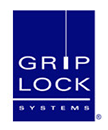Industry News
Demand For Lighting Stagnates During Second Quarter Of 2010
August 29, 2010
NEMA’s Lighting Systems Index (LSI) dipped 0.3 percent on a quarter-to-quarter basis during the second quarter of 2010. On a year-over-year basis, the index registered a 5.3 percent gain versus 2Q 2009. However, since that quarter marked the lowest reading ever recorded for the LSI, this rate of year-over-year growth indicates that lighting equipment demand remains at a very low level. When broken down by the underlying product mix, shipments of miniature lamps, large lamps, and fluorescent ballasts expanded on a year-over-year basis while fixtures and emergency lighting systems posted sizable declines.
As quickly as hopes of a strengthening economic recovery emerged in the spring, the mood has shifted significantly as concerns over the recovery’s staying power are rising rapidly. The revised estimate for real GDP showed this broad measure of U.S. economic growth increased 1.6 percent during the second quarter of 2010; however, the release also revealed that the recession was deeper and the recovery thus far has been shallower than previously estimated.
Lighting equipment demand remains impaired by the ongoing slump in residential and nonresidential construction activity. On the residential side of the market, housing starts were volatile during the winter and spring months, thanks to the federal homebuyer tax credit. But demand for new homes has regressed to levels near historical lows following the credit’s expiry. As a result, residential lighting demand is expected to remain weak for the foreseeable future as the housing market continues to cope with falling prices, tight lending standards and a feeble rate of job growth.
The steepest declines have likely already occurred for nonresidential construction. Nonetheless, any appreciable growth in commercial or industrial construction activity is not expected for at least several more quarters, especially since most of the major income property markets are still saddled with a large volume of vacant or underutilized space. Retrofitting and replacement demand will likely account for the vast majority of nonresidential lighting equipment demand over the near term. Given this backdrop, the LSI is expected to remain close to its current low levels even as the calendar transitions into 2011.









































